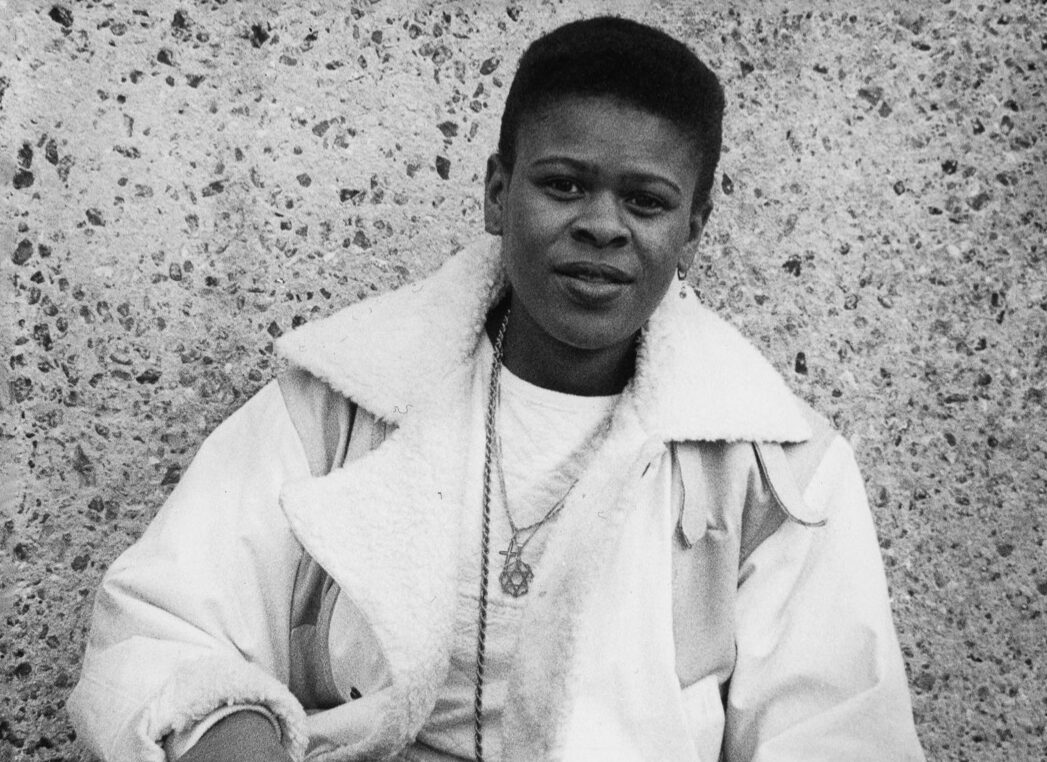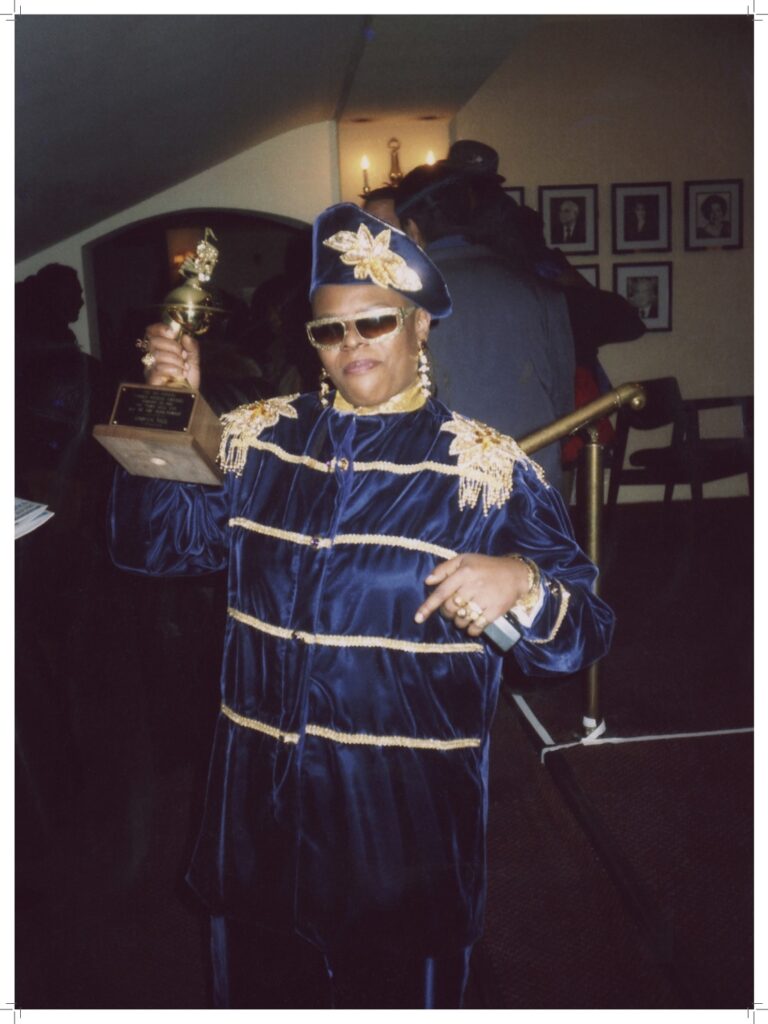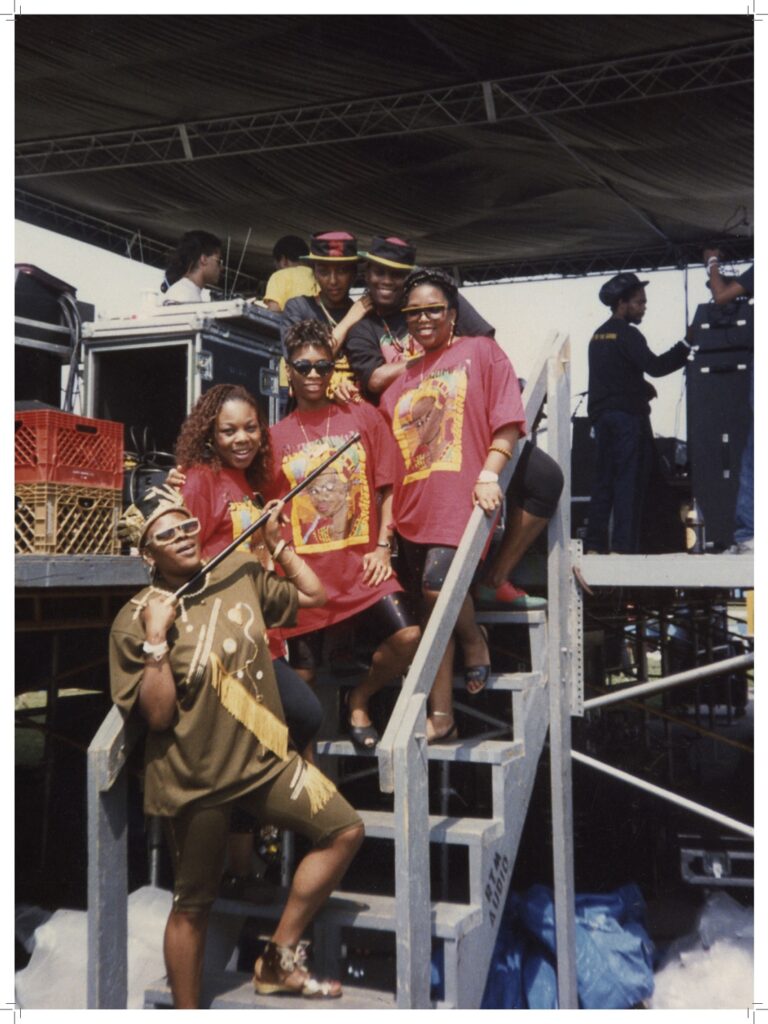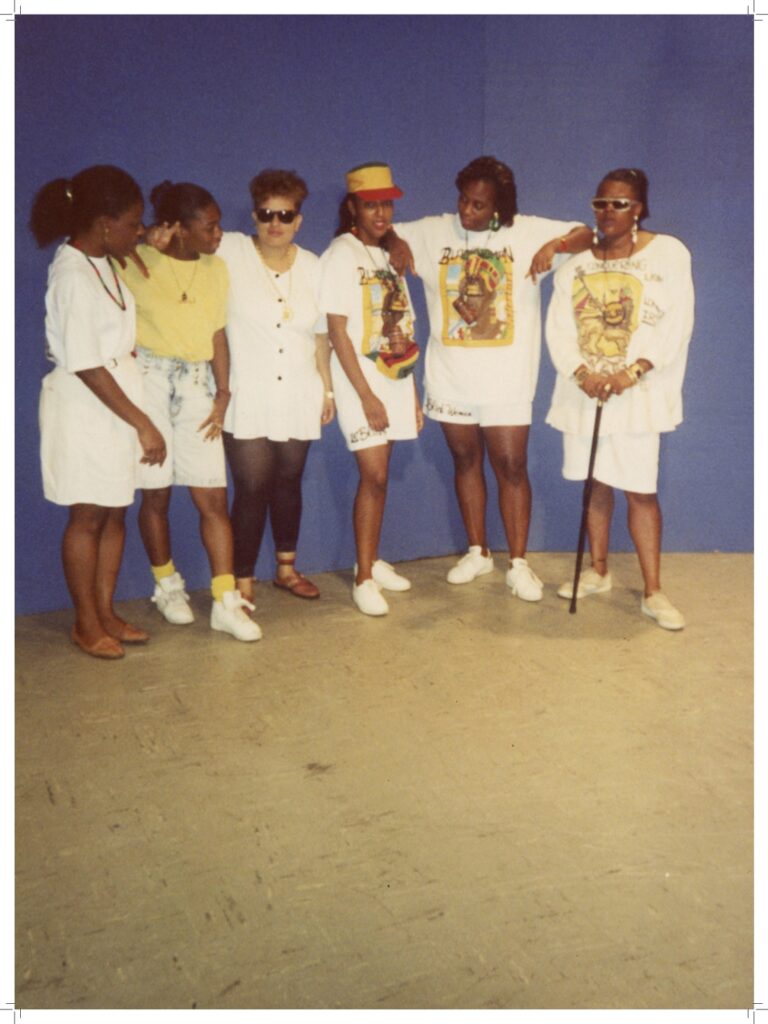From the Brixton riots to the first UK Black Pride, meet Sutara Gayle: artist and activist
Sutara Gayle has been a defining force in UK culture for over 40 years.

| M |
y first act of activism? I’d say it was on school grounds with bullies taking liberties with somebody that’s not confrontational. I’m bullying the bullies. That’s my first act of activism,” says Sutara Gayle of her earliest memory of standing firm against injustice.
Born in Brixton, London, in April 1963, Gayle has been known by many names. Born Lorna Gayle, she was later Lorna Gee, reggae icon and lovers rock queen. Now she’s been crowned Sutara, which means ‘divine star’, a name given to her by her brother and spiritual teacher, Mooji (Anthony Paul Moo-Young). As an actor, music artist and human rights activist, Gayle has empowered Black and queer communities through her art for more than 40 years.
“I’d say the 1981 Brixton riots was when I realised that, ‘Wow, we’re being taken advantage of, we’re at a disadvantage, and we’re looked upon unfairly.’ There was so much brutality in those days. I saw things happen right in front of my eyes,” she recalls. “I felt that collective rage for the first time in my life.”

Then, in 1985, armed police invaded her sister Cherry’s home and shot her, claiming mistaken identity. It was an event that left Cherry in critical care and with life-changing injuries, and sparked the 1985 Brixton riots.
Gayle led marches demanding justice for her sister, fighting a system that tried to deny her human rights. But she rejected violence: “Fire bun fire,”nah ri! Instead, Gayle used her voice. “My music, it’s a form of rebellion. It’s a part of being visible, a part of being acknowledged,” she says. Back in the 80s and 90s, Gayle’s music broke down racial barriers and helped Black artists gain reverence, especially in the underground scene. Her music career began young. “I was growing up on the sound systems… I started at 13, 14 years old and was supposed to be laying down in my bed.” Instead, Gayle was, “dancing in the Blues dances” and the shubeens (illicit bars).
Due to racism and safety concerns, these events were often community-led and took place in unlicensed venues. While on remand as a teenager, Gayle heard her 1983 single ‘Three Weeks Gone (Mi Giro)’ playing on the radio for the first time. That was when she turned her life around, vowing to focus on her art.
“Brixton is a vibrant, colourful, beautiful place,” she says of the south London neighbourhood. However, growing up queer in Brixton was complicated. “I kind of hid things… growing up in an environment where being queer was not a ‘good thing’. It was frowned upon… The family that I grew up with were staunch Seventh Day Adventists.” She laughs, “I came out to my mum when I was about 35 years old.” Her mum replied, “D’ya tink mi born yesterday?”
Gayle made a big impact around the world in the rare groove, reggae, revival and hip-hop scenes, gaining recognition and friendships with icons we still revere today, from Angela Bassett to singer Judy Mowatt, the late Bionic Rhona and DJ Super Cat.
Her song ‘Got to Find a Way’ won Gayle a BBC London Radio Reggae Award for Best Female Artist in 1985 and 1986. Additionally, she won Best Female DJ at the Tamika Reggae Awards in New York in 1992. Her 2024 single ‘Closet’ is undeniably queer-coded, but the message is freedom for all. Last year, she also released a greatest hits album, Got to Find a Way.

For Gayle, activism is community building through every song, performance and event. In 2003, she started running queer night Blessence. It was originally billed as women-only, but soon “the queer Black men started knocking on the door: ‘We like dis music too.’ And we couldn’t keep the guys out. It grew into something great,” Gayle remembers.
Lady Phyll used to attend Blessence “religiously”, recalls Gayle. And when Lady Phyll co-founded the first official UK Black Pride in Southend in 2005, Gayle supported it and continued to do so in the years that followed. “When they [Lady Phyll] did the first UK Black Pride in Southend, I said to all my Blessence network, ‘Let’s go support this.’ I performed at it. I judged a swimwear competition. I had a hand in getting a lot of the artists back in the day, like Janet Kay and some of the lovers rock artists, to perform.”
Gayle continues: “I’ve been a part of UK Black Pride from the whole conception and growth, from Vauxhall to Elizabeth Park, but all credit goes to Lady Phyll for making it happen. Black Pride, for me, was an extension of what I was doing with Blessence.”
Creating “sacred spaces” like club night Blessence, supporting Lady Phyll’s work with UK Black Pride and building visibility for Black queer people is at the core of Gayle’s activism. “It’s about going out and showing your colours on that one day… If your family can’t know, for that one day you can shuck out and be your authentic self! That’s why I think we all create these spaces.”
Acting entered Gayle’s life at the age of 35, but despite being accepted into drama school, a grant she depended on was cut. That did not stop her. “I did a big old fundraiser. Louisa Mark, Carroll Thompson, Tippa Irie, Winston Reedy, Janet Kay, Victor Romero Evans – all of them performed at this gig. It was called Artists Supporting the Arts,” she says. Despite Gayle being five years over the age requirement, the headmaster at Webber Douglas Academy of Dramatic Art saw her and put her forward for a DaDA award, which later allowed her to enrol. “I’m not waiting to be invited. I’m building the table and bringing a sound system! By the time I finished drama school, I had nine different agents interested.”

Gayle is returning to the stage this October and November for a UK tour of her autobiographical play The Legends of Them. Directed by Jo McInnes, it is a bold solo show blending theatre with music and memory – a story that encompasses Gayle’s reggae stardom, incarceration and spiritual awakening. Produced by Hackney Showroom and supported by Brixton House, it first premiered in 2023 and played at the Royal Court Theatre in 2024, winning Best Performance Piece at the Offies in 2024 and gaining numerous positive reviews, including in The Times, Time Out and The Stage.
Gayle’s life shows how Black Pride and activism through art can create visibility, community and change. “It was so worth it, and I will continue,” she says as tears well up in her eyes. “We just want to be free and to say, ‘This who I am.’ So, with everything I do, I have us in my heart, man.”
Legends of Them is at Brixton House, 7-10 August, and in Edinburgh, 19-24 August. UK Black Pride is on Sunday 10 August.
